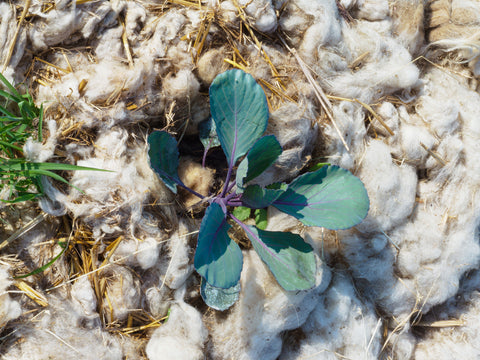Does wool decompose in the soil?
Wool is a natural fiber derived from shearing sheep. Sheep produce wool naturally and continuously; it is part of their nature. When Merino wool fabrics are disposed of, they naturally decompose in the soil, releasing useful nutrients. Unlike synthetic fibers, which accumulate in landfills for a long time, contributing to global pollution.
Wool is biodegradable even in the marine environment, unlike microplastics from synthetic fabrics, which are harmful to marine and terrestrial ecosystems.
Why is wool biodegradable?
Wool, like all natural fibers, is biodegradable, meaning it can be broken down by living organisms such as fungi and bacteria. Additionally, wool is made of keratin, a natural protein similar to that in human hair. When keratin is decomposed by natural organisms, it has no negative impact on the environment.
How long does wool take to decompose?
Wool fabrics can decompose up to 95% after 15 weeks in the soil, releasing essential elements such as nitrogen and sulfur, beneficial for crops. However, some treatments applied during fabric production can affect biodegradability. For example, wool dyeing slightly increases (by 8 weeks) resistance to decomposition. Conversely, the anti-shrink treatment speeds up the wool degradation process.
Wool decomposes quickly in warm and humid conditions, aided by the action of fungi and bacteria. When introduced into the soil, wool becomes a slow-release fertilizer, providing nutrients for the growth of other organisms and contributing to a range of benefits, including increased water retention capacity and reduced erosion.

Unlike synthetic fabrics, wool does not contribute to landfill saturation or microplastic pollution, as it naturally decomposes without accumulating in the environment. Studies from 2020 have shown that the polyamide resin used in wool treatment does not cause microplastic pollution.

Is wool ecological and sustainable?
Wool is an ecological and sustainable choice because it is biodegradable, releases nutrients into the soil, and does not contribute to the release of microplastics into the environment.
For this reason Lanaioli has chosen to produce its garments only with natural fibers such as wool, cashmere, silk, and cotton.







